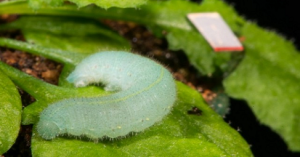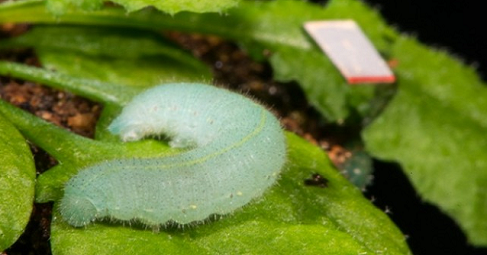
Do You Know Plants Can Hear Themselves Being Eaten And Release Defensive Chemicals To Stop It?
It sounds extremely unpleasant, but researchers from the University of Missouri-Columbia in the US found that plants can actually feel the vibrations of something chewing on them, and they release defensive chemicals to try to stop it. We already knew that plant growth could change in reaction to certain sounds, but this is the first instance we’ve seen of a plant actually protecting itself from a predator’s chomping, specifically.

In the study, researchers put caterpillars on Arabidopsis, a small, cabbage-like plant, and recorded vibrations and the sounds of a caterpillar chewing on a plant. Then they played these recordings back to another plant, and after a few hours the plant released mustard oil – a substance that caterpillars are aversive to.
Heidi Appel and Rex Cocroft Says Plants Respond to Leaf Vibrations Caused by Insects:
Heidi Appel, senior research scientist in the Division of Plant Sciences in the College of Agriculture, Food and Natural Resources and the Bond Life Sciences Center at MU said, ‘Previous research has investigated how plants respond to acoustic energy, including music’.

‘We found that “feeding vibrations” signal changes in the plant cells’ metabolism, creating more defensive chemicals that can repel attacks from caterpillars,’ she added.
Watch How plants hear leaf vibrations & react to attacking insects:
Heidi Appel and Rex Cocroft says, the next step is to find out more about how different plant species are able to sense and respond to these chewing vibrations. The results could help farmers better protect crops from pests in the future, and help scientists understand more about how plants sense and respond to their environments.